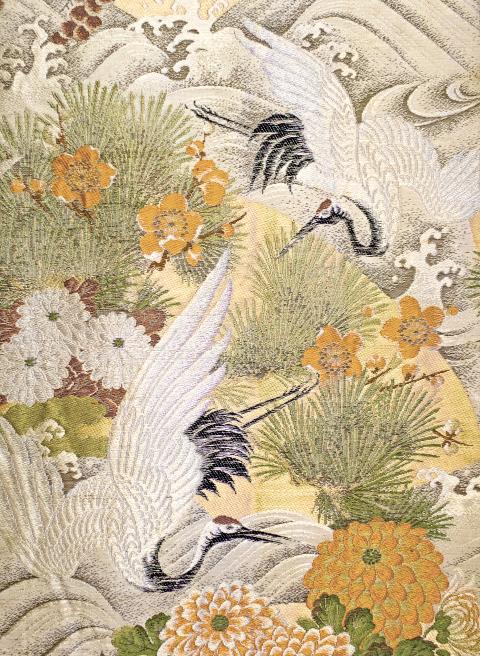Chinese Practice
一舉兩得、一箭雙鵰
yi1 ju2 liang3 de2; yi2 jian4 shuang1 diao1

Photo: Paul Cooper, Taipei Times
照片:台北時報記者古德謙攝
One action, two gains
One arrow, two birds of prey
這次介紹的是兩句意義相似、且都源自於古代故事的成語:「一舉兩得」和「一箭雙鵰」。
第一個故事講述春秋時代,有名獵人得知深山裡有兩隻老虎,打算上山獵虎。然而老虎相當兇狠,於是有人建議他,可以等到兩隻老虎爭食完,彼此打累了之後再出擊。獵人上山後果真看到兩隻老虎爭搶一頭牛,相爭過程中,一隻虎咬死另外一隻。獵人覺得時機成熟,便上前輕鬆把剩下的那隻老虎殺死。這個故事後來便衍生出成語「一舉兩得」。
第二個故事講述一名擅長軍事和射箭的隋朝將軍長孫晟,某日去打獵,看見空中有兩隻鵰,他只用一支箭便把兩隻鳥射下,於是有了「一箭雙鵰」這個成語,意即一次行動,可以同時達到兩個目標。
英文中也有一個類似的諺語,就是”to kill two birds with one stone,” 意思一樣是指以一次行動,達成兩個目標。有趣的是,中文也有「一石二鳥」的說法,此成語就跟英文的概念一模一樣。
(台北時報記者古德謙整理)
我在搬家前把幾件二手家具賣給我的室友,因為我的新家放不下,她又正好用得上,可以說是一舉兩得。
(Before I moved house I sold my roommate some secondhand furniture. I can’t fit it in my new place, and she could do with it. Why not kill two birds with one stone?)
我的新盆栽不但可以美化環境,還可以驅蟲,一箭雙鵰。
(My new bonsai makes the place look nicer and also repels insects. I’m killing two birds with one stone.)
英文練習
kill two birds with one stone
There are two Chinese idioms, with similar meanings and which come from stories from ancient China, which mean the same as the English “to kill two birds with one stone.”
The first comes from pre-imperial China. A hunter heard tell of two tigers in the mountains, and was advised to wait until they had fought over a kill before attacking. He found two feasting on a bull they had killed. He waited until they fought, and the vanquished lay dying, before he went in to kill the victor. This story became the idiom 一舉兩得.
The second story relates how a Sui dynasty general and archer named Zhangsun Sheng saw two birds in the sky one day and shot them down with a single arrow, giving us the idiom 一箭雙鵰.
Both「一舉兩得」and「一箭雙鵰」mean achieving two goals at one time. Interestingly, there is another phrase,「一石二鳥」, which literally means “one stone, two birds.”
Why don’t you drive me to town and pick up your new phone while we’re there. Kill two birds with one stone.
(要不要載我去城裡,順便去領你的新手機?一舉兩得。)

As the priest Antonius Hambroek stood in the dim chamber of Fort Zeelandia, his eldest daughter clung to him, her voice trembling. “Father, don’t go. They’ll kill you, and what will become of Mother and my sisters?” Outside, the sounds of Koxinga’s relentless canon siege boomed through the fortress. The defenders were on the brink of collapse. Starvation gnawed at their resolve, and the air carried the acrid stench of spent gunpowder and rotting flesh. Dutch reinforcements from Batavia had failed to arrive, leaving the garrison isolated and hopeless. Hambroek’s face was calm, though sorrow weighed heavily on his

As we bundle up in thick coats to stay warm during the winter, there is a population that has already adapted to extremely low temperatures. These people live in the remote city of Yakutsk, the coldest city on Earth. Yakutsk is situated in the heart of Siberia, which is the capital of the Sakha Republic in Russia. This historic mining city began to flourish in the 19th century following the discovery of gold deposits. Given its construction on permafrost, the average temperature in the city remains below 0°C for over half the year, with winter temperatures dropping to an astonishing -50°C.

The Dutch introduced the Indian mango (Mangifera indica) to Taiwan in the 17th century. It is a green-skinned mango with thick fibers that get stuck in the teeth, but it boasts a rich aroma and a unique taste. In 1954, Taiwan’s Council of Agriculture introduced several mango cultivars from Florida, USA, including the Irwin, Haden, and Keitt varieties. After seven years of testing and domestication, the Irwin variety was chosen for promotion. Years later, the sample saplings started to bear fruit. These mangoes were large, with thin, vibrant red peels and golden pulp. The Irwin mangoes were mouth-wateringly sweet and

對話 Dialogue 清清:今天中午我要多吃一點,不然晚上可能會吃不飽。 Qīngqing: Jīntiān zhōngwǔ wǒ yào duō chī yìdiǎn, bùrán wǎnshàng kěnéng huì chībùbǎo. 華華:怎麼了?為什麼會吃不飽? Huáhua: Zěnmele? Wèishénme huì chībùbǎo? 清清:今天大年初七,是「人日節」,傳統上結了婚的女兒要回家給父母送長壽麵,而且最好是素的,我姐姐會回來,只吃素麵,我應該很快就餓了。 Qīngqing: Jīntiān Dànián chūqī, shì “Rénrì jié,” chuántǒng shàng jiéle hūn de nǚ’ér yào huíjiā gěi fùmǔ sòng chángshòumiàn, érqiě zuìhǎo shì sù de, wǒ jiějie huì huílái, zhǐ chī sùmiàn, wǒ yīnggāi hěn kuài jiù èle. 華華:我還是第一次聽說有「人日節」呢!這是怎麼來的啊? Huáhua: Wǒ háishì dì yī cì tīngshuō yǒu “Rénrì jié” ne! Zhè shì zěnme lái de a? 清清:老一輩的人說,女媧是在第七天造出了「人」,所以今天可說是我們每個人的「生日」呢!生日快樂! Qīngqing: Lǎoyíbèi de rén shuō, Nǚwā shì zài dì qī tiān zào chūle “rén,” suǒyǐ jīntiān kěshuōshì wǒmen měi ge rén de “shēngrì” ne! Shēngrì kuàilè! 華華:你也是啊!欸?那前六天女媧都做了什麼呢? Huáhua: Nǐ yěshì a! Éi? Nà